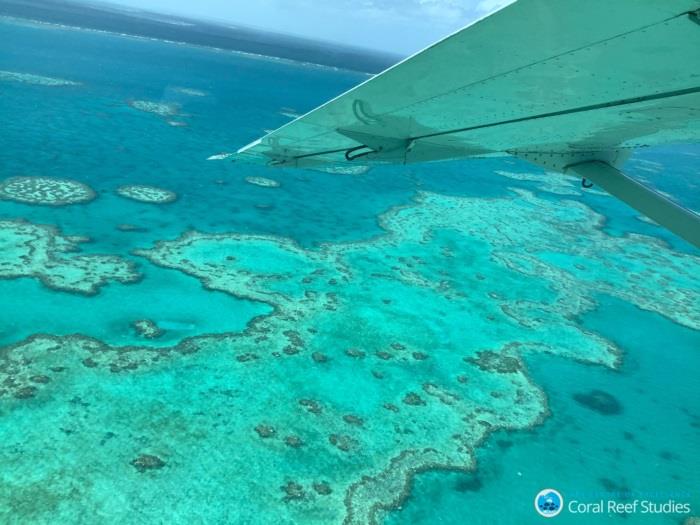
How governments resist World Heritage 'in Danger' listings
by Melissa Lyne 24 Jul 2020 22:32 UTC

The Great Barrier Reef is just one highly threatened ecosystem that successive Australian governments continue to shield from an in Danger listing © Coral Reef Studies
A study published this week found national governments repeatedly resisted the placement of 41 UNESCO World Heritage sites - including the Great Barrier Reef - on the World Heritage in Danger list. This resistance is despite the sites being just as threatened, or more threatened, than those already on the in Danger list.
The study was co-authored by a team of scientists from Australia, the UK and the US.
World Heritage sites represent both natural and cultural heritage for global humanity. Their protection sits within the jurisdiction of individual countries. An in Danger listing is intended to raise awareness of threats to these sites and encourage investment in mitigation measures, such as extra protection.
Lead author Professor Tiffany Morrison from the ARC Centre of Excellence for Coral Reef Studies at James Cook University (Coral CoE at JCU) says national governments responsible for these World Heritage sites use political strategies of rhetoric and resistance to avoid a World Heritage in Danger listing.
"Avoiding an in Danger listing happens through partial compliance and by exerting diplomatic pressure on countries that are members of the World Heritage Committee," Prof Morrison said.
She says World Heritage in Danger listings are increasingly politicised. However, until now, little was known about what that politicisation entailed, and what to do about it.
The study found the net number of in Danger listings plateaued since the year 2000. At the same time, low visibility political strategies—such as industrial lobbying and political trade-offs associated with the listings—intensified.
"Our results also challenge the assumption that poor governance only happens in less technologically advanced economies. Rich countries often have poor governance too," Prof Morrison said.
"We show that the influence of powerful industries in blocking environmental governance is prevalent in many regions and systems."
The Great Barrier Reef, under the custodianship of the Australian Government, is just one of the threatened sites that continues to evade the World Heritage in Danger list.
Professor Terry Hughes, also from Coral CoE at JCU, says there is no doubt that coral reefs are in danger from man-made climate change.
"The study makes no recommendation on which World Heritage sites should be formally recognised as in Danger but points out that virtually all sites are increasingly impacted by anthropogenic climate change," Prof Hughes said.
"The Great Barrier Reef was severely impacted by three coral bleaching events in the past five years, triggered by record-breaking temperatures," he said.
World Heritage in Danger listings are frowned upon by high-value natural resource industries such as mining, forestry and environmental tourism. Prof Morrison says the in Danger listings restrict the social license of fossil fuel industries to operate.
"Industry coalitions therefore often lobby governments, UNESCO and World Heritage Committee member countries," she said.
"They claim an in Danger listing diminishes their nation's international reputation and restricts foreign investment, national productivity, and local employment. Some also challenge the World Heritage system itself and undermine reports by scientists, non-governmental organisations and the media."
These lobbying efforts heighten a government's sense of political threat by linking the listings to national economic performance, as well as to the individual reputations of politicians and senior bureaucrats.
"At the same time, UNESCO is acutely aware of these dynamics and concerned about threats to its own reputation," Prof Morrison said.
"Politicians and bureaucrats often work to conceal these dynamics, resulting in poor governance and continued environmental degradation."
Prof Morrison says revealing and analysing these dynamics is a step closer to moderating them.
The study provides new evidence for how interactions, from 1972 until 2019, between UNESCO and 102 national governments, have shaped the environmental governance and outcomes for 238 World Heritage ecosystems. It also provides examples of how concerned stakeholders can, and are, experimenting with countervailing strategies that harness these politics.
"Given the global investment in environmental governance over the past 50 years, it is essential to address the hidden threats to good governance and to safeguard all ecosystems," the study concludes.
Paper
Morrison T, Adger W, Brown K, Hettiarachchi M, Huchery C, Lemos M, Hughes T. (2020). 'Political dynamics and governance of World Heritage ecosystems'. Nature Sustainability. DOI: 10.1038/s41893-020-0568-8.